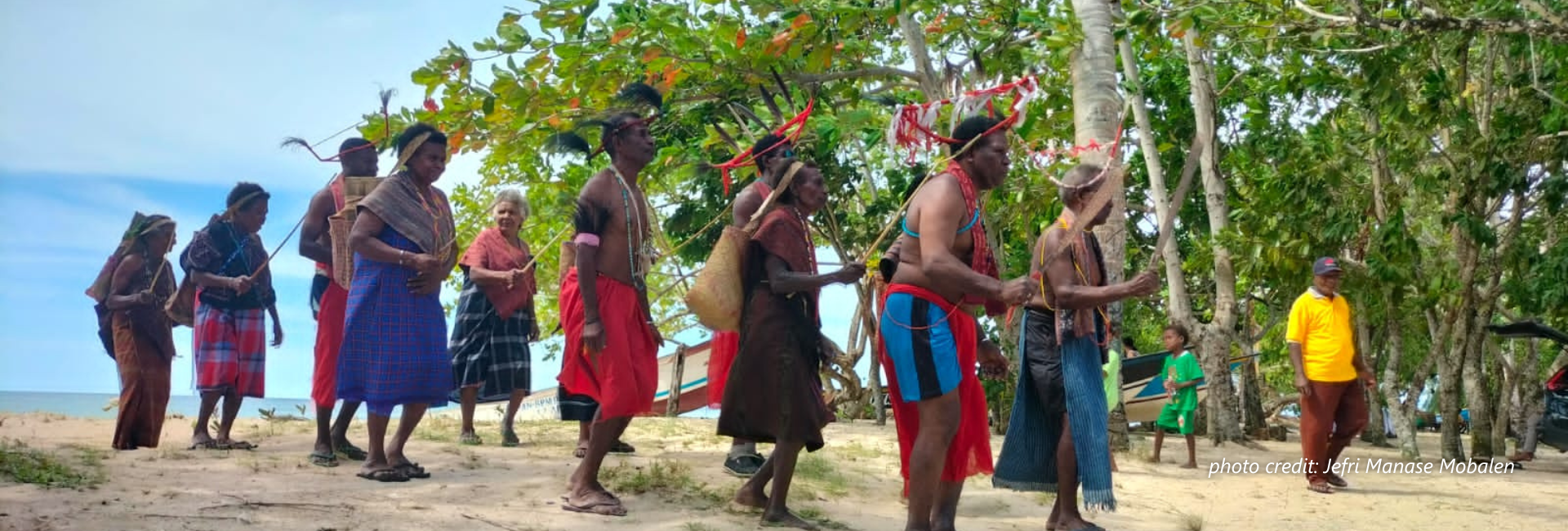Twenty years after the implementation of the Special Autonomy Law (UU Otsus) No. 21 of 2001, Papua and West Papua remain the two provinces with the highest poverty rates and the lowest human development indices in Indonesia. Despite the affirmative policies mandated by UU Otsus for indigenous Papuans (OAP), disparities persist between OAP and non-OAP communities in various dimensions. This makes OAP the most vulnerable group facing the covariate shocks of the COVID-19 pandemic since 2020 and the ongoing conflicts. In this context, the role of social protection becomes crucial to enhance the resilience of OAP and prevent further vulnerability and marginalization.
The SMERU Research Institute, with support from the Kurawal Foundation, conducted a study to investigate gaps in existing social protection measures addressing the needs of OAP, using the adaptive social protection (ASP) framework. The study combined quantitative approach, involving secondary data processing, and qualitative approach based on primary data collection in Kabupaten (District of) Jayawijaya of Papua and Kabupaten Sorong of West Papua in October–November 2022.
The study identified various efforts to address OAP vulnerability undertaken by actors from different sectors, including the central government, provincial and kabupaten governments in the Papua region, as well as nongovernmental actors. However, the coverage of social assistance and social security schemes from the central government in the Papua region, especially in conflict-prone kabupaten, is significantly lower than the average coverage of similar schemes in other regions. Moreover, although OAP are more vulnerable than non-OAP, the coverage of both social assistance and social security for both communities is not substantially different. On the one hand, the lack of integration between social assistance-social security schemes and empowerment programs prevents OAP from improving their capacities and livelihoods. On the other hand, available empowerment programs tend to overlook the specific characteristics of OAP as a customary law community (MHA), thus failing to develop the livelihoods of OAP. Specifically, in the context of internally displaced persons (IDPs) who are victims of conflict in the Papua region, the existing social protection system is still unresponsive to the needs of OAP as IDPs and is not adaptive to their specific situations. This results in a low fulfilment of basic needs for OAP in their displaced locations.
Based on these study findings, we have formulated a series of five policy briefs on adaptive social protection for OAP. The first policy brief presents recommendations for four key features in the design of ASP for OAP, providing an overview of the other four policy briefs. Two of these four policy briefs focus on transformative livelihood development schemes for OAP, each directed towards the central government and local governments. Meanwhile, the remaining two policy briefs emphasize the optimization of handling IDPs to be executed by both the central government (the fourth policy brief) and local governments (the fifth policy brief).
Suggested citations:
- Warda, Nila and Asep Kurniawan (2023) ‘Building Resilience of Indigenous Papuans through Adaptive Social Protection.’ In Policy Brief Series on Adaptive Social Protection for Indigenous Papuans. SMERU Policy Brief No. 1 [access date].
- Warda, Nila and Dyan Widyaningsih (2023) ‘Promoting Transformative Livelihood Development for Indigenous Papuans.’ In Policy Brief Series on Adaptive Social Protection for Indigenous Papuans. SMERU Policy Brief No. 2 [access date].
- Warda, Nila, Dyan Widyaningsih, and Asep Kurniawan (2023) ‘Developing the Livelihoods of Indigenous Papuans through Local Governments’ Transformative Programs.’ In Policy Brief Series on Adaptive Social Protection for Indigenous Papuans. SMERU Policy Brief No. 3 [access date].
- Warda, Nila and Sylvia Andriyani (2023) ‘Optimizing the Handling of Internal Displacement due to Armed Conflicts in the Papua Region.’ In Policy Brief Series on Adaptive Social Protection for Indigenous Papuans. SMERU Policy Brief No. 4 [access date].
- Kurniawan, Asep and Nila Warda (2023) ‘Emphasizing the Role of the Local Governments in Addressing Internal Displacement due to Armed Conflicts in the Papua Region.’ In Policy Brief Series on Adaptive Social Protection for Indigenous Papuans. SMERU Policy Brief No. 5 [access date].




